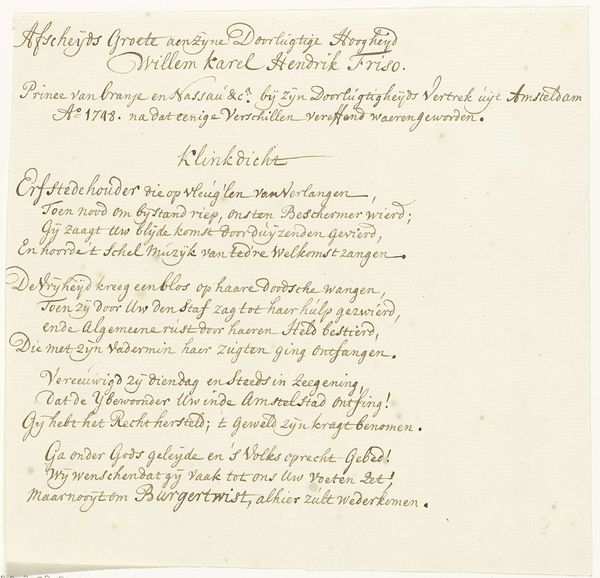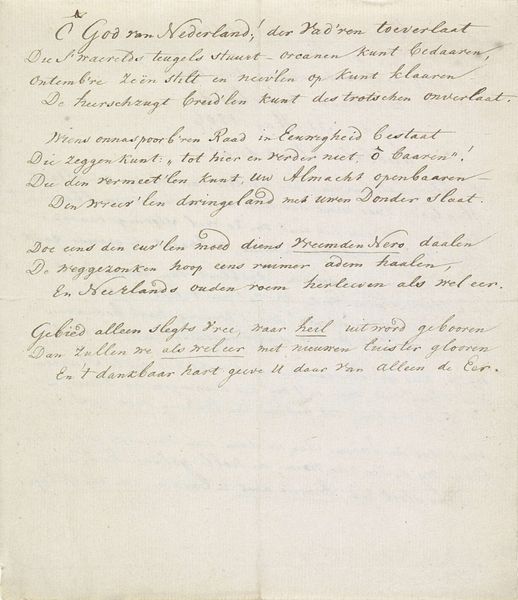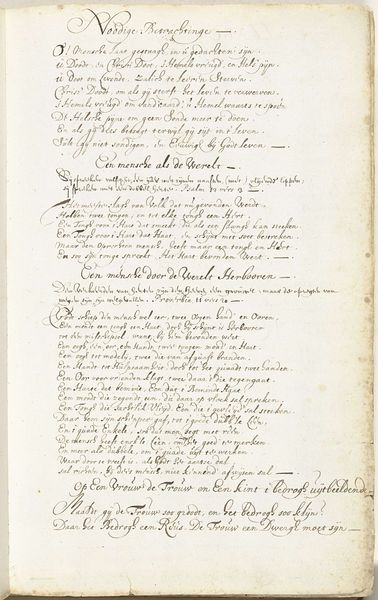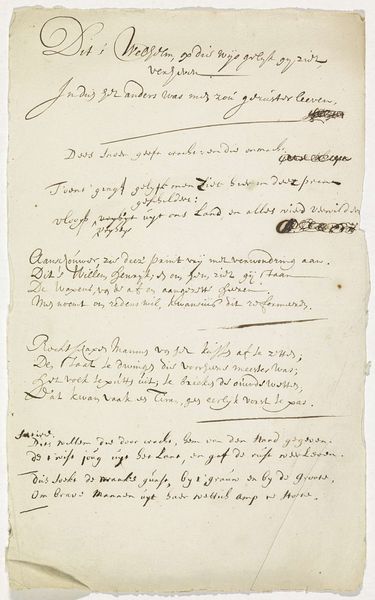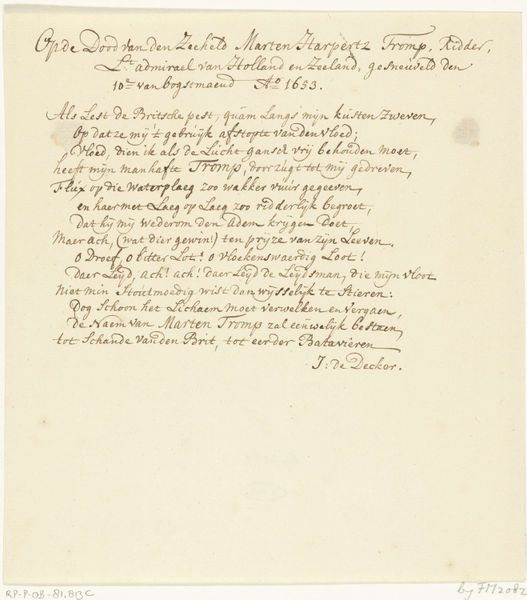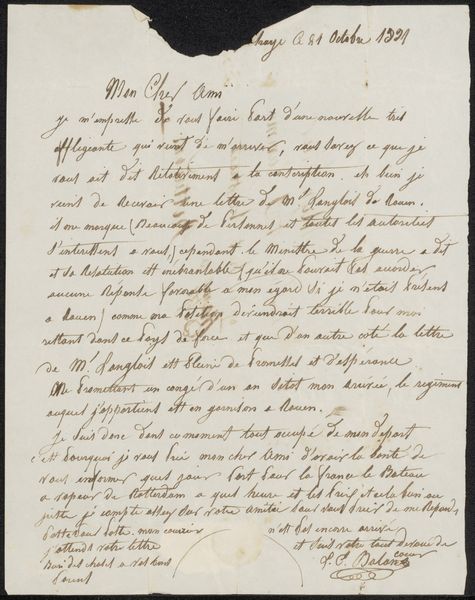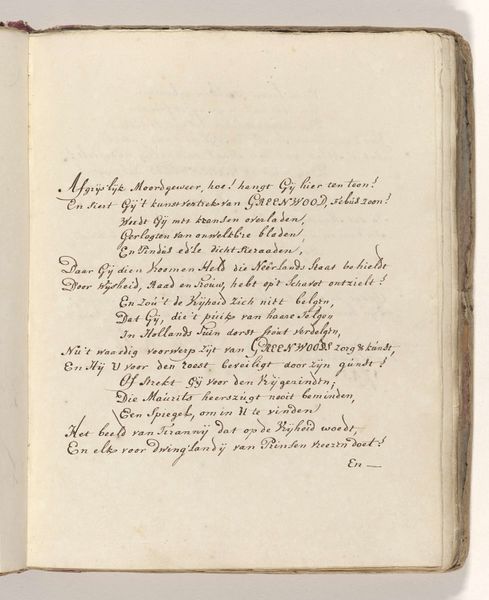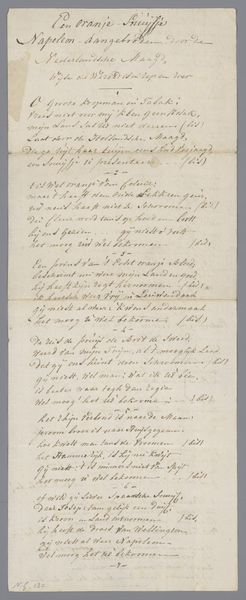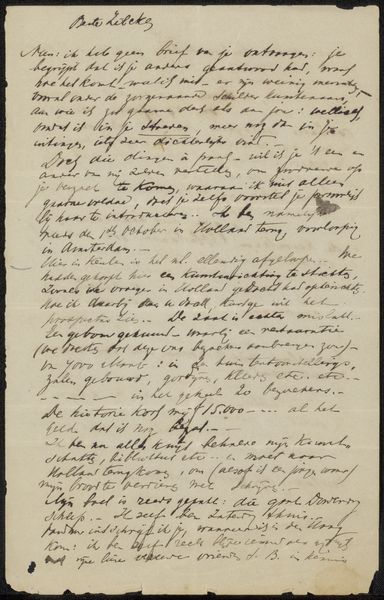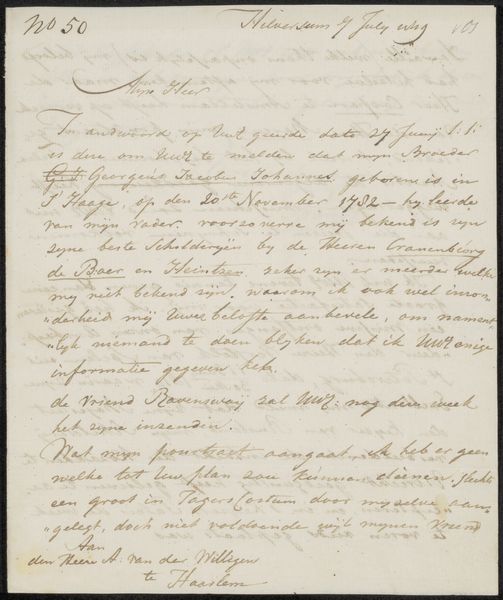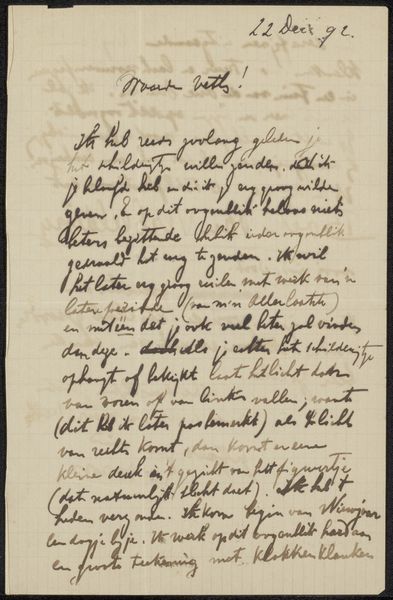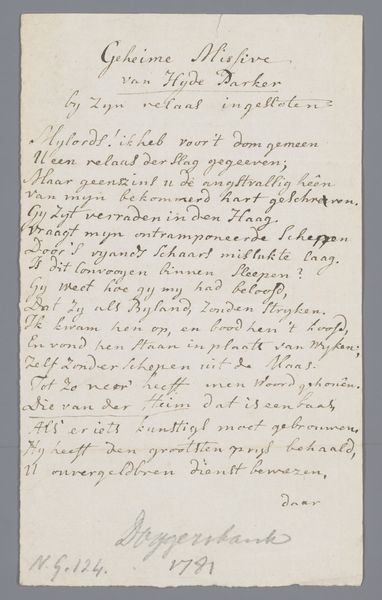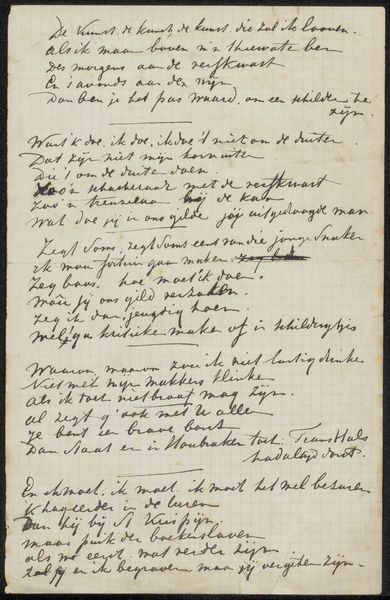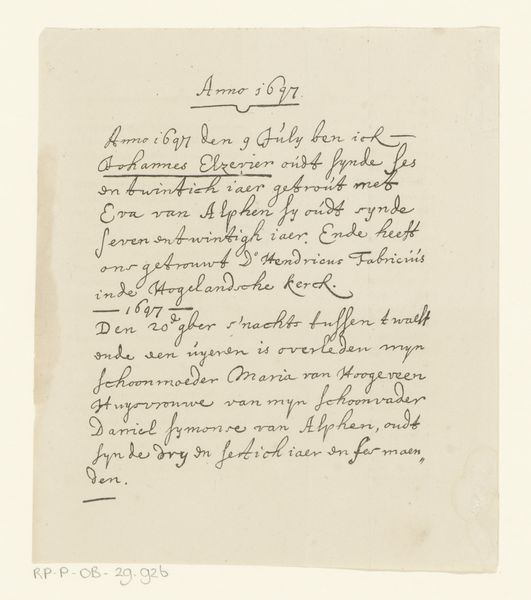
drawing, paper, ink
#
drawing
#
narrative-art
#
dutch-golden-age
#
paper
#
ink
#
romanticism
#
calligraphy
Dimensions: height 207 mm, width 130 mm
Copyright: Rijks Museum: Open Domain
In 1806, Samuel Iperusz Wiselius penned this handwritten poem, "Blad met drie verzen op het poederen van pruiken," which translates to “Sheet with three verses on the powdering of wigs." During the late 18th and early 19th centuries, powdered wigs were a symbol of status and adherence to social norms, particularly among the aristocracy and professional classes. Wiselius, writing during a period of social upheaval influenced by Enlightenment ideals and revolutionary sentiments, seems to critique the artifice and excess associated with wig-wearing. The poem delves into themes of vanity and superficiality, whilst questioning established hierarchies. The act of powdering wigs, typically performed by servants, highlights the power dynamics of the time. Wiselius uses vivid language to evoke the emotional landscape of a society grappling with changing values. The poem reflects a broader cultural shift away from elaborate displays of wealth and status towards more egalitarian ideals. It captures a moment of transition, inviting us to consider the human cost of social change and the enduring power of personal expression.
Comments
No comments
Be the first to comment and join the conversation on the ultimate creative platform.
